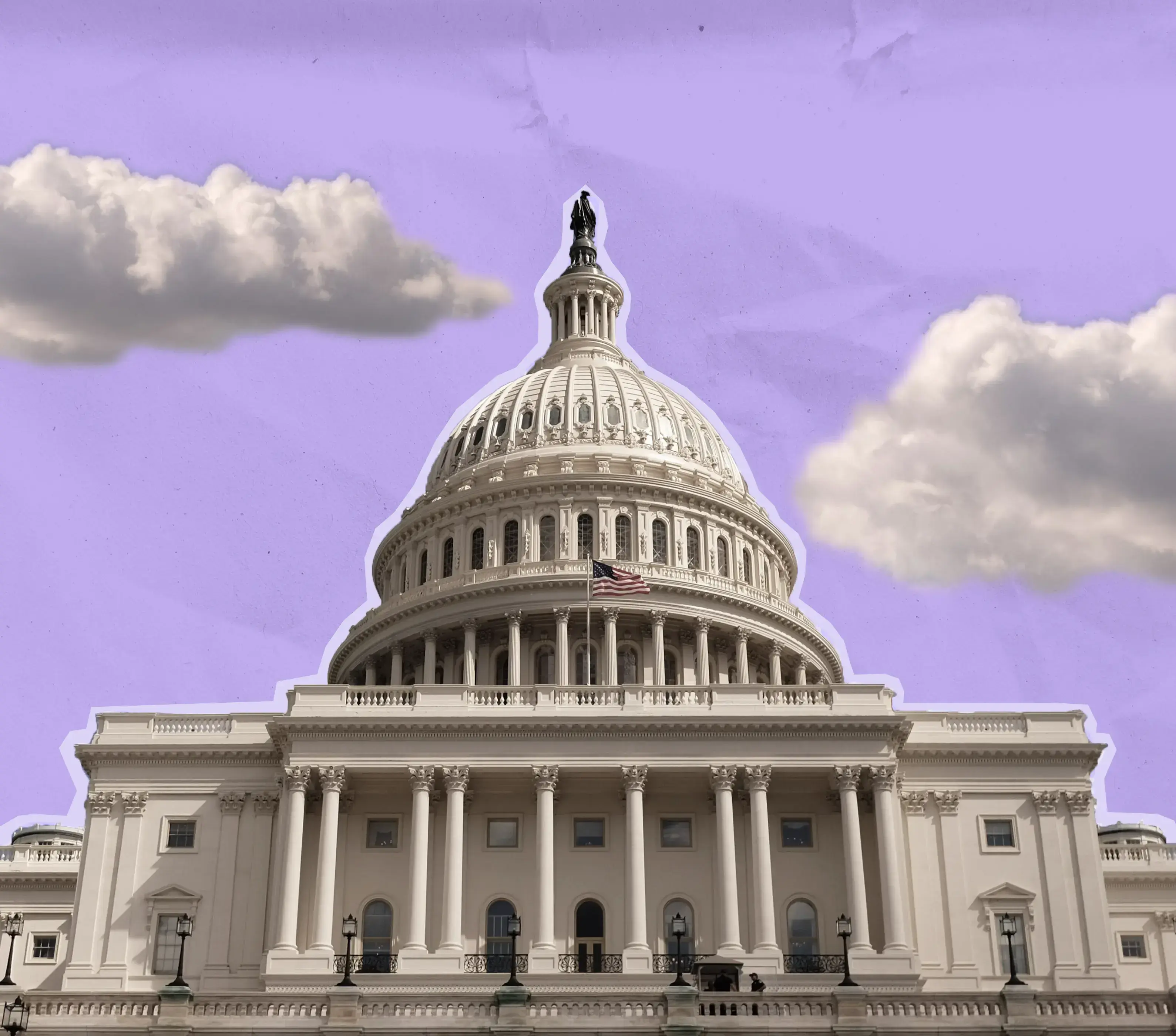The federal budget is the itemized plan for public expenditures of the federal government. This includes mandatory and discretionary spending. The budget is compiled annually and is named after the proceeding fiscal year, which runs from Oct. 1 to Sept. 30. If a budget is not agreed upon by the start of the fiscal year, a government shutdown will be triggered unless Congress passes a continuing resoultion, which provides funding at existing levels for a period of time to allow for negotiations to continue.
Federal Budget
This ratio compares the federal government debt of a country to the country's gross domestic product (GDP), in other words, what it owes to what it produces. Expressed as a percentage, the higher the debt-to-GDP ratio of a country the more likely it is that a country will face economic challenges due to its debt.
Debt-to-GDP Ratio
The federal debt is the cumulative amount the federal government owes to bondholders, both foreign and domestic. This represents the total, historical difference between federal spending and revenue.
National Debt
The federal budget deficit is the annual difference between the federal government’s revenue and how much it spends.
Budget Deficit
GDP is the total monetary value of consumer goods and services within a country's economy. This calculation considers consumer spending, government spending, private domestic investment, and a country's imports and exports.
Gross Domestic Product (GDP)
The U.S. federal government's sole source of income is tax revenue, which is primarily composed of individual income taxes, corporate income taxes, and payroll taxes. Other sources of tax revenue include excise taxes and estate taxes.
Tax Revenue
These bills provide and place limits on an agency's budget authority, the ability to spend government funds. There are 12 annual appropriations bills and occasional supplementary appropriations bills that obligate federal funds for specific purposes.
Appropriations Bills
Authorizing legislation is a prerequisite for Congress to appropriate budget authority, or the ability to spend government funds for various programs. Authorization laws also act as guidance on the appropriate level of funding to be set aside for specific programs. This might be in setting a limit, or it may simply authorize “such sums as may be necessary.”
Budget Authorizations
A congressional budget resolution establishes topline spending and deficit limits for the following fiscal year. Although not law, because it's not signed by the president, budget resolutions are enforceale using the rules of either chamber. By law, a budget resolution is to pass the House and Senate by April 15 of each year, which rarely happens.
Budget Resolution
The president's budget request kicks off the annual budget process and provides a breakdown of how the president would like Congress to enact tax and spending laws. This request is due on the first Monday in Feburary but is normally provided late.
Budget Request
Discretionary spending is the portion of the federal budget that Congress debates every year. There are 12 components of discretionary spending, and these are usually broken down into defense and non-defense spending.
Discretionary Spending
The programs that Congress is required to fund make up mandatory spending. This includes programs like Social Security, Medicare, and interest payments on the debt.
Mandatory Spending
What you pay for your own medical care.
Out-of-pocket Payments
Within the context of the Hospital Insurance (HI) Trust Fund, insolvency means that Medicare is unable to cover the full cost of Part A (hospital care) benefits.
HI Trust Fund Involvency
Chronic conditions are diseases and conditions that usually last for 3 months or longer, such as diabetes, heart disease, hypertension, and cancer.
Chronic Diseases
The percentage of the costs of a healthcare service that you pay (e.g., 20%). Coinsurance kicks in after you've paid your deductible.
Coinsurance
The amount you pay for healthcare services before your insurance begins to cover expenses.
Deductibles
Examples include disabilities that qualify the individual for Social Security Disability Insurance (SSDI) benefits (i.e., unable to engage in “substantial gainful activity” because of a medically-determined physical or mental impairment expected to last at least 12 months or until death), end-stage renal disease (ESRD), and amyotrophic lateral sclerosis (ALS).
Long-term Disabilities
For every current recipient of Social Security, there are several active workers whose taxes are transferred directly to retirees. When Social Security began, there were dozens of workers per every recipient. That number has shrunk to just under three workers for every active Social Security recipient.
Worker-to-Beneficiary Ratio
As a covered worker, you pay Social Security taxes up to the taxable maximum. In 2025, that amount is $176,100. Since Social Security was never meant to function as a retirement program, wages subject to taxation were capped so that high-income individuals did not end up with Social Security payments many times what would be necessary to prevent poverty in old age.
Taxable Maximum
As the spouse of a Social Security recipient, you are entitled to additional benefits of up to one-half of their full benefits. You do not have to have a work history to receive this payment. If you have worked and are owed Social Security benefits, you get the maximum of what you are owed or your calculated spousal benefit.
Spousal Benefit
All funds in the OASDI trust funds are invested in "special issue securities" specifically created for Social Security. In effect, they are IOUs that the government pays to itself.
Special Issue Securities
In the context of Social Security, the "replacement rate" or "replacement ratio" is the percent of pre-retirement earnings that Social Security recipients can expect to receive. Median-income retirees typically expect around a mid-thirty percent replacement rate, low-income retirees get closer to fifty percent, and high-income retirees typically receive a mid-twenty percent replacement rate.
Replacement Rate
Every covered worker pays a payroll tax that includes a combined 12.4% up to the taxable maximum.
Payroll Tax
The primary insurance amount is the sum of three separate percentages of the AIME. It is the initial benefit a retiree receives, and it increases with any future COLA.
PIA
The Old Age and Survivors Insurance Trust Fund is what most people picture when they hear "Social Security." This trust fund pays benefits to retired workers and their spouses and dependents. It also pays benefits to the survivors of deceased retirees.
OASI
OASDI stands for Old Age, Survivors, and Disability Insurance. It encompasses both the retirement portion of Social Security (OASI) and the disability insurance program (DI).
OASDI
The full retirement age began at 65 but is slowly increasing to the final age of 67 for those born in 1960 or later.
Full Retirement Age
Employers whose workers pay into Social Security also contribute 6.2% of each worker's payroll taxes. While it may seem like employers pay for half of all benefits, economists typically assume that any taxes paid by employers are in effect paid by employees, since in absence of the mandatory taxes, the employees would have higher wages by roughly the same amount.
Employer Contribution
Every covered worker contributes 6.2% of their paycheck in OASDI payroll taxes, which constitutes the "employee contribution" toward Social Security.
Employee Contribution
Future Social Security recipients can elect to retire early at 62 and receive reduced benefit payments.
For more, click here.
Early Retirement Age
DI stands for Disability Insurance. While most people associate Social Security with retirement, it also technically encompasses disability insurance payments to almost nine million Americans.
DI
The total amount of any employee's pay that is taxed by Social Security payroll taxes. All wages below the taxable maximum are covered earnings. About 94% of workers fall under the taxable maximum every year.
Covered Earnings
The cost of living adjustment (COLA) is an annual adjustment for Social Security benefits designed to prevent losses in beneficiaries' purchasing power due to inflation.
COLA
Social Security recipients are not limited to retirees. In the OASI system, spouses are entitled to a spousal benefit, as are dependents of beneficiaries who are under the age of 19.
Beneficiary
Stands for average indexed monthly earnings. When a worker retires, the Social Security Administration summarizes up to 35 years of the worker's lifetime earnings and adjusts them for wage inflation. This number is then used to calculate the retiree's "PIA" or primary insurance amount.
AIME


.webp)








.svg)

